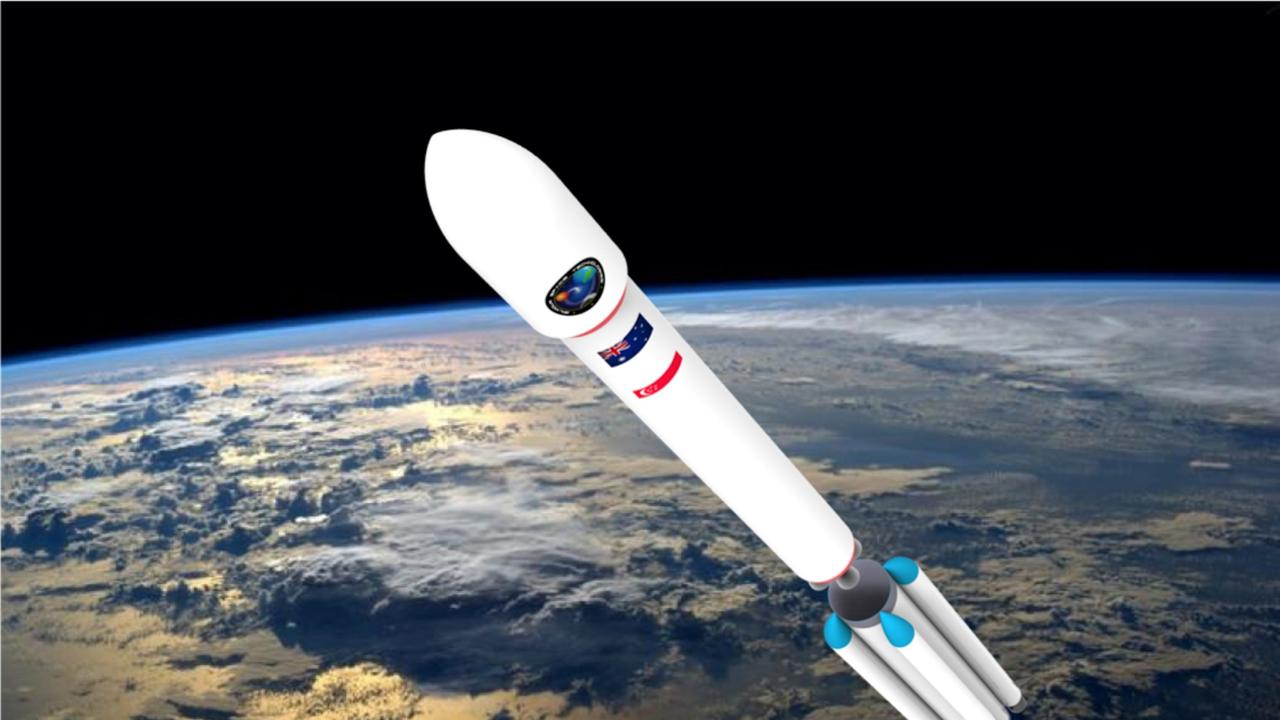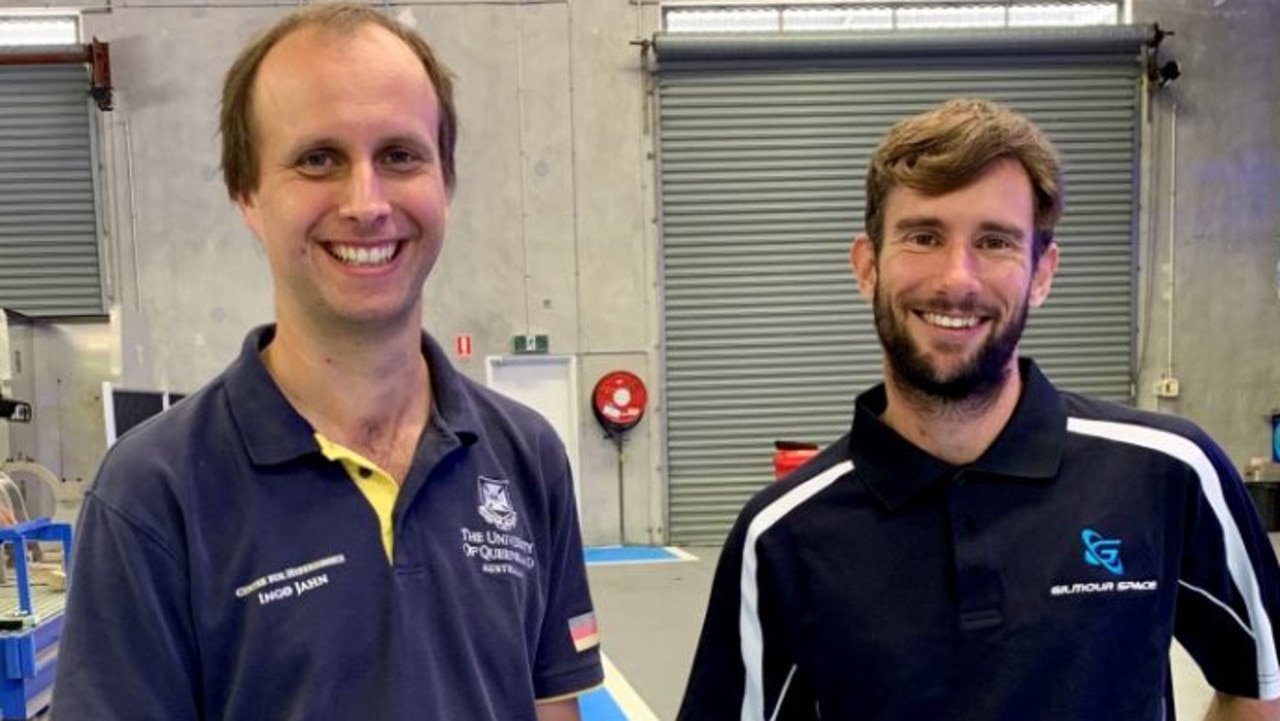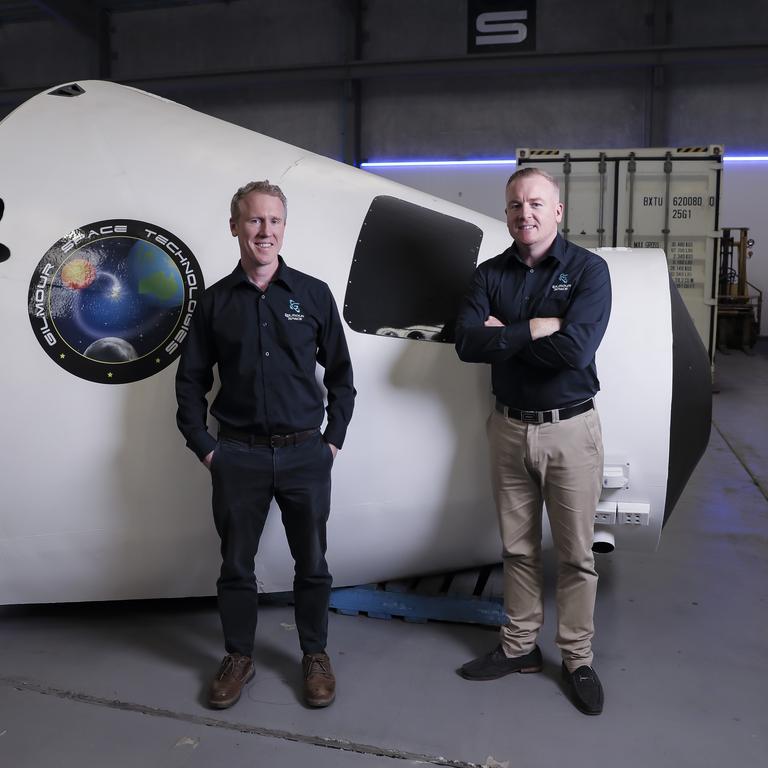UQ partners with Gilmour to boost Australian space industry
Australia might have lagged behind other countries in establishing a space agency, but we could be launching rockets in just two years.
Australia’s space industry could be given a huge boost by a new plan to develop and build rockets in Queensland.
The University of Queensland last week announced a partnership with Gold Coast-based Gilmour Space company, founded in 2013.
The partnership also involves the State Government’s Advance Queensland Industry Research Fellowship initiative, designed to support PhD qualified researchers in “undertaking original research that will benefit Queensland, while partnering with industry”.
The State Government has provided a three-year, $300,000 grant to UQ’s Dr Ingo Jahn to continue his research in turbopump design, which Advance Queensland described as “one of the most complex and challenging components of a rocket engine”.
Dr Jahn said the work would be “invaluable” for the burgeoning Australian space industry.
RELATED: NASA’s brutal selection process

“Rather than buying products from overseas, the rockets and components will be manufactured in Australia, and this is an essential step towards developing a space launch vehicle industry in Queensland with many expected flow-down benefits to our manufacturing industries,” Dr Jahn said.
He said there was a lot to consider in the design process.
“Fuel delivery systems for rockets are one of the most complex engineering challenges.
“They are located at the intersection of multiple systems; to stay light they have to be incredibly power dense, they must operate across wide temperature and pressure ranges and they are safety critical.”
RELATED: Surprising passenger aboard launch

He said the challenge to overcome was in “finding effective and safe engineering solutions to meet all these requirements”.
In addition to his research work at UQ, Dr Jahn is senior lecturer in mechanical engineering at the university.
Gilmour Space co-founder James Gilmour said the grant would help his company in what was expected to be a busy year of developing and testing various rocket systems.
“We’re grateful to UQ and the government for supporting our efforts to grow a space launch industry here in Queensland,” Mr Gilmour said.
He told Brisbane community radio station 4ZZZ building up the Australian space industry could support up to 20,000 jobs in the next few years and contribute up to $12 billion in revenue to the economy within the next 10 years, aided by the establishment of the Australian Space Agency in 2018.

Australia was the last of the OECD nations to establish its own space agency.
Gilmour recently signed a separate deal with the Department of Defence to work together on research relating to technologies that could be used by Defence, including in propulsion materials and avionics.
The company hopes to begin launching its first commercial rockets in 2022, with an initial focus on small, low-Earth orbit satellites (LEO).
These kinds of satellites are similar to ones that Elon Musk and others are hoping to use to provide internet services around the globe by establishing a network of satellites that can deliver high-speed internet.
While these satellites will most likely be delivered using SpaceX’s own rockets, other competitors, potentially even the company in charge of the national broadband network, could use Gilmour’s rockets in the future.
Current satellite internet relies on geo-stationary satellites that need to be precisely 36,786 kilometres from Earth so they orbit in time with the speed of the Earth’s rotation.
This is so they stay above the area they are designed to communicate with.
The National Broadband Network currently uses two geostationary Sky Muster satellites to deliver satellite internet on the NBN to about 100,000 Australians, with plans to connect up to approximately 430,000.
It’s possible the company in charge of the NBN could use LEO satellites in the future.



